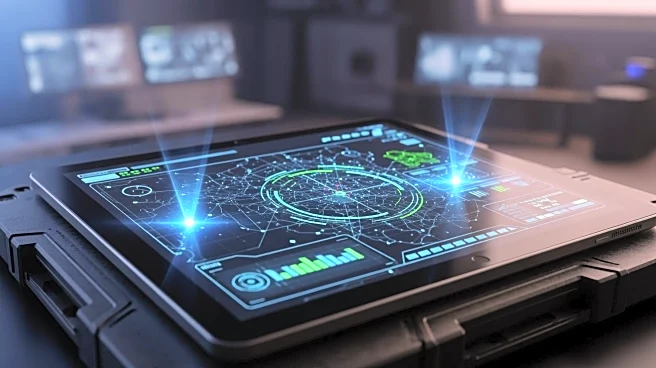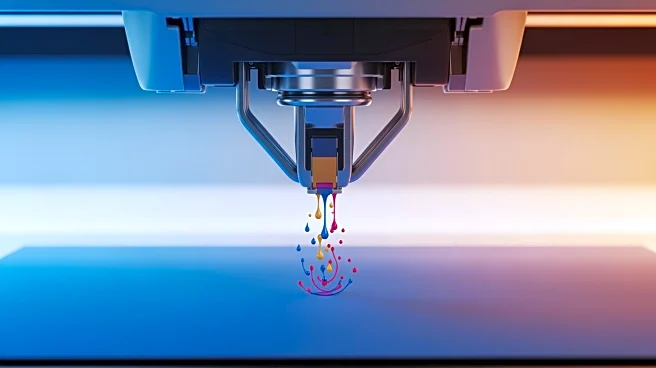What's Happening?
A growing number of women are using AI chatbots, such as ChatGPT and Character.AI, to cope with the emotional aftermath of breakups. These AI platforms offer companionship and validation, providing a digital
rebound for those seeking emotional support. Users customize these AI 'boyfriends' to fulfill emotional needs that were unmet in previous relationships. The trend has gained traction, with online communities like the /MyBoyfriendIsAI subreddit sharing experiences of healing through AI companionship. While some find comfort in these digital relationships, experts caution that relying solely on AI for emotional support may hinder genuine human connections.
Why It's Important?
The use of AI for emotional support highlights a shift in how individuals seek comfort and validation in the digital age. This trend reflects broader societal changes in relationship dynamics and the increasing role of technology in personal lives. While AI can provide immediate emotional relief, it may also lead to isolation and a false sense of fulfillment, potentially impacting mental health and social interactions. The reliance on AI for emotional support raises questions about the future of human relationships and the ethical implications of AI in personal contexts.
What's Next?
As the trend of using AI for emotional support grows, it may influence the development of more sophisticated AI companions designed to mimic human relationships. This could lead to advancements in AI technology focused on emotional intelligence and personalized interactions. However, it also necessitates discussions on the ethical use of AI in personal relationships and the potential consequences of substituting human connections with digital ones. Stakeholders, including mental health professionals and tech developers, may need to address the balance between AI companionship and real-world social support.
Beyond the Headlines
The increasing use of AI for emotional support may have long-term implications for societal norms around relationships and intimacy. It challenges traditional notions of companionship and raises questions about the authenticity of emotional connections in a digital context. As AI becomes more integrated into personal lives, it could reshape cultural attitudes towards relationships, potentially leading to new forms of social interaction and emotional fulfillment. This development also underscores the need for ethical guidelines in the use of AI for personal support, ensuring that technology enhances rather than replaces human connections.











